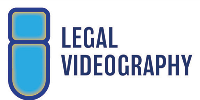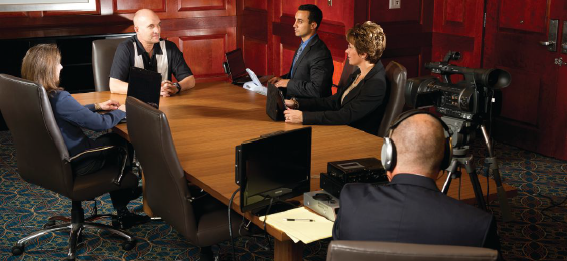Precision-Based Legal Videography for Seamless Evidence Filming.
Precision-Based Legal Videography for Seamless Evidence Filming.
Blog Article
The Duty of Legal Videography in Depositions and Tests
Lawful videography has become a vital device in both depositions and tests, giving a complex approach to recording witness testimonies. By capturing not just the talked word yet likewise the subtleties of non-verbal interaction, this medium improves the reputation of testimonies and protects vital evidence for future proceedings. As lawyers increasingly recognize its value, it triggers a much deeper examination of how these visual documents can affect juror assumptions and test results. What effects might these growths hold for the future of legal practice?
Relevance of Lawful Videography
Lawful videography plays a critical duty in the documentation and presentation of depositions and tests. This specific area integrates technical skills with lawful knowledge to develop a reputable record of process that can considerably influence instance results. The visual aspect of legal videography boosts the understanding of witness testament, allowing jurors and courts to observe not only the talked words yet additionally the attitude, emotions, and body language of the witnesses.

The value of legal videography extends past the court room; it additionally plays a crucial function in preserving proof for future reference, whether for charms or more lawsuit. Its assimilation into the lawful process is important for making sure a fair and precise representation of the facts, inevitably contributing to the search of justice.

Refine of Legal Videography
While recording the subtleties of depositions and tests, the procedure of lawful videography entails several vital steps that ensure high-grade, precise recordings. An expert lawful videographer prepares by assessing the situation products and comprehending the specific needs of the deposition or trial. This prep work includes familiarizing themselves with the participants and the context, which helps in recording important information.
On the day of the recording, the videographer establishes the required equipment, which usually consists of high-definition video cameras, microphones, and correct lighting. Ensuring optimum angles and sound quality is essential, as it straight impacts the efficiency of the recording. The videographer connects with attorneys and participants to develop procedures, guaranteeing that every person understands the recording process.
Throughout the deposition or trial, the videographer meticulously tapes the procedures, paying very close attention to both spoken and non-verbal cues. legal videography. This includes recording the temperament and reactions of witnesses and attorneys. After the session wraps up, the videographer may modify the video footage for clearness and compliance with legal criteria, creating a last product that accurately shows the procedures for future referral and use in legal contexts
Advantages in Depositions
The consolidation of videography in depositions provides various benefits that enhance the total procedure of gathering proof. One primary benefit is the capability to record witness testaments with aesthetic and acoustic fidelity, supplying an extra precise representation of the witness's attitude, tone, and body language. This multidimensional approach enables lawyers and courts to examine reliability better than standard written transcripts alone.
In addition, videographed depositions offer as an effective device for protecting testament. Must a witness come to be inaccessible for trial, their recorded deposition can be played in court, making sure that their evidence remains easily accessible and appropriate. This aspect dramatically decreases the threat of losing why not try these out crucial information that can affect instance results.
Moreover, using legal videography advertises much better prep work for lawyers. Evaluating video clip footage permits lawful groups to evaluate and improve their strategies, determining toughness and weak points in their situations. This primary benefit can bring about more compelling discussions in court.
Last but not least, videography enhances the total expertise of the deposition procedure, instilling self-confidence in clients regarding the thoroughness of their legal representation. By leveraging innovation, attorneys can considerably boost the performance of depositions.
Influence On Tests
In several tests, the assimilation of videography can considerably influence the presentation of proof and the jury's perception. Lawful videography records witness testaments and crucial evidence in a vibrant format, allowing jurors to engage with the material on several degrees. This aesthetic part boosts the storytelling element of a trial, providing context and psychological vibration that traditional text-based proof may do not have.
Additionally, video clip recordings can work as powerful tools for impeachment during cross-examination. When disparities develop between a witness's prior statements and their courtroom testament, video clip proof offers an unbiased reference that can sway jurors' opinions. This immediacy and quality can bolster the credibility of a celebration's narrative while at the same time undermining opposing disagreements.
In addition, using videography can assist improve intricate info, making it extra easily accessible to jurors who may have a hard time to understand intricate information provided solely via spoken statement. By incorporating visuals with acoustic details, lawful videography can enhance retention and understanding, ultimately affecting the court's decision-making procedure. The impact of videography in tests extends beyond mere looks; it plays an important duty in shaping the lawful landscape and results.
Future Trends in Legal Videography
As we look towards the future of lawful videography, numerous emerging trends guarantee to reshape its role within the court. One significant fad is the combination of synthetic knowledge (AI) in video evaluation and modifying - legal videography. AI can enhance the process of determining crucial minutes in recorded depositions, enabling lawyers to swiftly access relevant content, thus improving performance in case prep work
Furthermore, the rise of digital truth (VR) and enhanced reality (AR) innovations is expected to transform how jurors experience proof. By immersing jurors in a simulated environment, these modern technologies can provide an extra extensive understanding of complex circumstances, like it causing even more educated deliberations.

Moreover, the boosting demand for remote depositions, accelerated by the COVID-19 pandemic, will likely continue. Legal videographers will need to adjust internet to brand-new software and platforms to make certain top notch recordings in virtual settings.
Finally, the expanding emphasis on information safety and security will demand more stringent procedures for storing and sharing video proof. As the legal landscape progresses, legal videographers must stay abreast of these trends to keep their importance and effectiveness in the judicial procedure.

Verdict
In recap, lawful videography serves an essential feature in the judicial process, enhancing the stability of depositions and trials. As modern technology continues to evolve, lawful videography is poised to more transform its function within the lawful landscape.
Report this page